Marta Frongia
Department of Electrical and Electronic Engineering, University of Cagliari
My thesis project for the B.Sc. in Biomedical Engineering is focused on the parameterization of existing algorithms for fetal ECG and/or heart rate extraction from non-invasive abdominal recordings, and their validation on open datasets.
Silvia Fullone
Department of Electrical and Electronic Engineering, University of Cagliari
My thesis project for the B.Sc. in Biomedical Engineering is focused on assessing the impact of spectral thresholds for ablative substrate recognition for post-ischemic ventricular tachycardia by using the Fast Fourier Transform Ratio.
Maura Cossu
Department of Electrical and Electronic Engineering, University of Cagliari
My thesis project for the B.Sc. in Biomedical Engineering is focused on the development of algorithms for automatic delineation of intracardiac electrograms and abnormal ventricular potentials event in patients with post-ischemic ventricular tachycardia.
Alice Sarritzu
Department of Electrical and Electronic Engineering, University of Cagliari
My thesis project for the B.Sc. in Biomedical Engineering is focused on the study of the possibility of identifying stereotypical movements in patients with RETT syndrome by using multimodal sensing and machine learning methods. This thesis is in collaboration with AIRETT.
Alessandro Cardia
Department of Electrical and Electronic Engineering, University of Cagliari
My thesis project for the B.Sc. in Biomedical Engineering is focused on testing healthy subjects with a motor adaptation protocol based on an innovative ecological perturbation developed in Unity 3D, and analysing the recorded data with ad-hoc performance indices, to be developed in Matlab.
 Elena Brau
Elena Brau
Department of Electrical and Electronic Engineering, University of Cagliari
My thesis project for the B.Sc. in Biomedical Engineering is focused on developing and analyzing in Matlab a dataset of non-invasive fetal ECG signals in risky pregnancies and fetal cardiac diseases. The thesis will be developed in collaboration with the Department of Pediatric Cardiology and the Department of Obstetrics and Gynecology of the ARNAS Brotzu, Cagliari (Dr. R. Tumbarello).
Luca Irmo
Philips Research, Eindhoven, in collaboration with MeDSP Lab
My thesis project for the B.Sc. in Biomedical Engineering is focused on assessing the impact of different electrode configurations and physiological conditions (e.g., fetal position) in the simulation of fetal electrocardiogram signals from abdominal mixtures by the fecgsyn toolbox.
Alessandro Saba
Department of Electrical and Electronic Engineering, University of Cagliari
My thesis project for the B.Sc. in Biomedical Engineering is focused on developing Matlab graphical user interfaces able to develop interactive educational experiences based on the acquisition of physiological signals from Biopac MP36 polygraphs.
Flavia Atzori
Department of Electrical and Electronic Engineering, University of Cagliari
My thesis project for the B.Sc. in Biomedical Engineering is focused on developing Matlab graphical user interfaces able to control biomedical polygraphs like Biopac MP36 or TMSI Porti7 to involve the user in interactive educational experiences based on the acquisition and processing of physiological signals.
 Benedetta Sibono
Benedetta Sibono
Department of Electrical and Electronic Engineering, University of Cagliari
My thesis project for the B.Sc. in Biomedical Engineering is focused on developing and analyzing in Matlab a dataset of long-lasting non-invasive fetal ECG signals, including twins. The thesis will be developed in collaboration with the Department of Pediatric Cardiology and the Department of Obstetrics and Gynecology of the ARNAS Brotzu, Cagliari (Dr. R. Tumbarello).
 Marco Zedda
Marco Zedda
Department of Electrical and Electronic Engineering, University of Cagliari
My thesis project for the B.Sc. in Biomedical Engineering is focused on investigat ing in silico the inducibility of ventricular tachycardia following the ablation using a dataset of post-ischemic left ventricle electrophysiological models. To this aim, the thesis will be developed using the openCARP framework.
Former projects
Nicola Loi
“Extraction of fetal ECG from multichannel abdominal recordings at different gestational ages”
Maurizio Collu
“Development of a MATLAB user interface for the analysis of HLA typing: application to the idiopathic pulmonary fibrosis”
Christian Cossu
“Delineation of abnormal intracardiac potentials in patients affected by post-ischemic ventricular tachycardia by means of deep neural networks”
Angelica Congiu
“Measure and evaluation of the eye movements during active and passive motor tasks with moving visual stimuli”
Grazia Corrias
“A Matlab interface for the study of the Startle Response”
Maria Mura
“Study of heart rate variability during polysomnography in patients affected by REM sleep behavior disorder”
Claudia Pola
“Decoding of signals from neural interfaces for the control of motor neuroprostheses by means of machine learning techniques”
Elisa Facchini
“Heart rate variability analysis on patients affected by REM Behavior Disorder with and without Parkinson’s Disease”
Enrico Ariu
“Study and development of a biofeedback system applied to neuromotor tasks in a virtual environment”
Giulia Olla
“Development and validation of a library of upper limb visual feedback perturbations in reaching tasks”
Elisa Pitzalis
“Development of a tool for the annotation of electrograms in ventricular tachycardia”
Simone Gregni
“Evaluation of ICA-based algorithms for fetal ECG extraction”
Matilde Farci
“Measurement and evaluation of eye movements in perceptual tasks with complex visual stimuli?”
Sara Collu
“Application of adaptive filtering to the extraction of fetal ECG signals from non-invasive recordings”
Alessandro Garau
“Morphological characterization of the electrocardiographic signal based on the heart rate by means of dynamic time warping”
Damiano Virdis
“Study of heart rate variability in idiopathic and parkinsonian subjects with REM sleep behavioural disorder”
Vanessa Selis
“Validation on healthy participants of the LiBRa home telerehabilitation system”
Carla Secchi
“Delineation of abnormal intracardiac potentials for the electrophysiological study of the post-ischaemic ventricular tachycardia”
Martina Oro
“Development of application for the collection of post-mortem physiological parameters”
Sonia Massa
“Study and Matlab implementation of software modules for the study of eye movements”
Chiara Porcu
“Application of the empirical mode decomposition to the study of ventricular intracardiac electrograms”
Stefano Deriu
“Development of an interactive virtual environment responsive to the heart rate changes”
Sara Belloni
“Development of a framework for the application of visuomotor perturbations in reaching tasks”
Gabriele Fragiacomo
“Development of a smart garment based on textile electrodes and inertial sensors for virtual-reality-based neurorehabilitation”
Maria Elena Lai
“Analysis of signals recorded by Empatica E4 during neuropsychological tasks in children with autism spectrum disorders” (B.Sc in Biomedical Engineering, University of Cagliari)
Michela Lusso
“Dynamic time warping for the comparison and adaptation of the cardiac cycle morphology at different frequencies” (B.Sc in Biomedical Engineering, University of Cagliari)
Marco Orrù
“Supervised artificial intelligence applications for the identification of arrhythmogenic substrates in post-ischemic ventricular substrate-mapping and ablation procedures” (M.Sc. in Computer Engineering, Cybersecurity and Artificial Intelligence, University of Cagliari)









